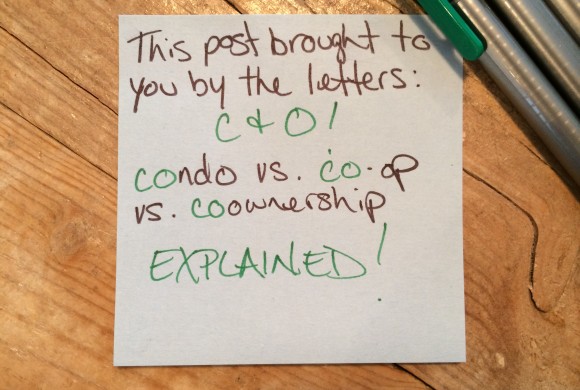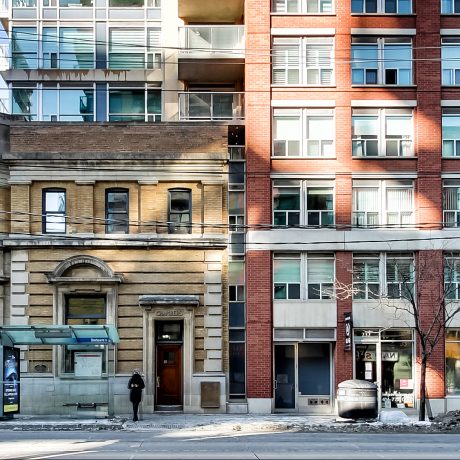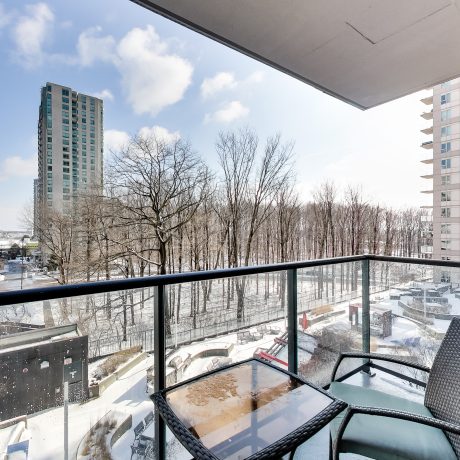Posted on February 7, 2014 in Buying, Condominiums/Multi-Residential
 What’s the difference between a condo vs. co-op vs. co-ownership?
What’s the difference between a condo vs. co-op vs. co-ownership?
If you’ve been cruising the listings for a starter condo, you’ve surely come across a co-op or co-ownership building or two. And it was potentially soul crushing. After looking at listing upon listing of sub 500sqft condos, you come across a 1br that has more than 700sqft and is being offered for less than the last 100 places you tried to talk yourself into liking. You send us an email that goes something like this:
Hilary, I know something must be wrong with it, but what about the listing at ___? Are they for real? Can we go look at it?
Then the reply:
I know, it looks great, doesn’t it? It’s a co-op building though and you need to have at least 30% down to get financing for it. They can be a great option but the initial expense is usually too high for the first time buyer.
I hear your heart drop through the screen. Truly, I do.
Buying into a co-op or co-ownership is a fantastic option for some people. They look and feel for the most part like a condo but there are a few notable differences:
Condo: You own your unit and receive a deed for it. Along with that you share an interest in the common elements with your fellow Condominium Corporation members.
Co-op: You own shares in the private company that owns the building and with that are given exclusive rights to occupy a specific unit in that building. Potential owners are also pre-screened by the board.
Co-ownership: You own a percentage of the building and your name (along with all the other owners) goes on title for the building. Like a co-op you have exclusive rights to a unit in the building. Potential owners may or may not be interviewed by the board.
Delving a little deeper, one reason you need to have a higher downpayment to get financing is that many lenders don’t want to finance something that they can’t foreclose on if you don’t pay. It’s much easier to repossess a condo unit than a percentage of a building or company. This keeps the value for these units down. Year over year increases are significantly smaller than what we see with traditional condos.
But there are some definite pros as well. For one, the maintenance fees include your property taxes. Many of these buildings also include heat and hydro in the maintenance fees (and sometimes cable!) which makes things pretty darn easy to budget for.
The turnover in these buildings is often lower. They have more stringent rules on renting out your unit so there is a high percentage of owner occupied units and with that comes more pride of ownership. If you doubt that makes a difference, I’ll take you to a condo building that’s mostly rentals and one that’s mostly owners. One of these two places will have dog pee stains on the hallway carpets.
The buildings tend to be older and the units are larger. What people would accept for a one bedroom was a lot bigger than what people (or developers) now think is okay.
Finally, with regards to co-ownerships, the option to condominiumize the building is there. It’s costly and can deplete the reserves (and yes, with all three options there are regular financial audits and a reserve fund) but the end result is a more valuable unit for each owner.
We’ve helped clients buy into both co-ops and co-ownerships and it is a different process than buying a condo. If this sounds like it might be a good option for you get in touch and we’ll walk you through it.
Nicholas Humphries: 416-526-2791, nick@nickandhilary.com
Hilary Browning: 416-735-4665, hilary@nickandhilary.com




